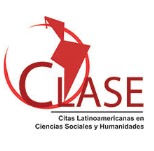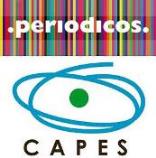Sentido e consciência em uma clínica da verdade
Palavras-chave:
alucinações, senso, consciência, verdade, éticaResumo
Por meio da leitura do conceito de Jean-Paul Sartre de uma consciência intencional, transcendente e não-reflexiva, junto ao conceito de sentido de Jean-Luc Nancy, é feita uma contribuição à posição crítico-poética do autor na psicoterapia. Quanto à caracterização clínica de percepções, ficções e alucinações, é apresentado um caso clínico no qual a distinção entre elas permanece esquiva; um trabalho clínico real é apresentado, não reduzível como retorno às leituras materialistas ou idealistas de Descartes, mas legitimado como apropriado para recuperar a singularidade de uma experiência vívida que se provou esquiva aos empirismos científicos e linguísticos adotados no trabalho clínico.
Downloads
Referências
Agamben, Giorgio (2002) [1999], Remnants of Auschwitz. The Witness and The Archive, Homo Sacer III. Daniel Heller-Roazen (Trad.). Nova York: Zone Books.
Aronson, Ronald (1980), Jean-Paul Sartre — Philosophy in the World. Londres: Verso. Badiou, Alain (2006), Logiques du Monde, Tomo II de L'Être et l'événement. Paris: Seuil. _______ (1988), L'Être et lévénement. Paris: Seuil.?Badiou, Alain y Žižek, Slavoj (2009), Philosophy in the Present, Peter Engelman (Comp.), Peter Thomas e Alberto Toscano (Trad.), Cambridge e Malden: Polity.?Blom, Jan Dirk (2009), A Dictionary of Hallucinations, Heidelberg: Springer. Chateau, Dominique, "Art", in Barbara Cassin (Ed.) (2014) [2004]). Dictionary of Untranslatables: A Philosophical Lexicon. S. Rendall et al. (Trad.). Princeton e Oxford: Princeton University Press, pp. 42-47.
Deleuze, Gilles (2013) [1985], Michel Foucault. El saber. Curso sobre Foucault. Tomo I. Buenos Aires: Cactus.
_______ (2006) [1980-86-87]. Exasperación de la filosofía. El Leibniz de Deleuze. Buenos Aires: Cactus.
Descartes, Renée (2000) [1637], Discourse on Method and Related Writings, Nova York: Penguin.
Esquirol, Jean-Etienne Dominique, (1965). Mental maladies. A treatise on insanity. A facsimile of the English edition of 1845. Hunt, E.K. (Trad.), Nova York, NY: Hafner Publishing Company.
Foucault, Michel (2000). Power. Essential Works of Foucault 1954-1984. Volume II. James Faubion (Comp.). Nova York: The New Press.
_______ (1994 [1966]). The Order of Things: An Archeology of the human Sciences. Nova York: Vintage Books.
_______ (1985 [1969]). The Archeology of Knowledge and the Discourse on Language. Nova York: Vintage Books.
Freud, Sigmund, Proyecto de una psicología (1950) [1895], em Publicaciones prepsicoanalíticas y manuscritos inéditos en vida de Freud (1886-1899) (2001), Obras Completas, Tomo I, Buenos Aires: Amorrortu.
__________ Formulaciones sobre los dos principios del acaecer psíquico [1911], em (1986), «Sobre un caso de paranoia descrito autobiográficamente» (caso Schreber), Trabajos sobre técnica psicoanalítica, y otras obras (1911-1913) (1996), Obras Completas, Tomo XII, Buenos Aires: Amorrortu.
Gadamer, Hans-George (1976), Philosophical Hermeneutics, David Linge (Trad. e Comp.), Berkeley: University of California Press.
Goyet, Francis, "Art of the Ancients, art of the Modern: The rules of art", in Barbara Cassin (Ed.) (2014) [2004]. Dictionary of Untranslatables: A Philosophical lexicon. S. Rendall et al. (Trad.). Princeton e Oxford: Princeton University Press.
Husserl, Edmund (1999), The Essential Husserl: Basic Writings in Trascendental Phenomenology, Donn Welton (Comp.), Indiana: Indiana University Press.
Klein, Melanie (1921) [1919], The development of a child. En Love, guilt and reparation and other works, 1921-1945 (1975), pp. 1-53. Nova York: Random House.
Levi, Primo (1989), The Drowned and The Save, Raynond Rosenthal (Trad.). Nova York: Randon House.
Nancy, Jean-Luc (2012) [2010]). Adoration: The Deconstruction of Christianity II. John McKean (Trad.). Nova York: Fordham University Press.
_______ (2008 [2005]), Dis-Enclosure, The Deconstruction of Christianity. Bettina Bergo, Gabriel Malenfant e Michael B. Smith (Trad.). Nova York: Fordham University Press.
_______ (2005) [2003], The Ground of the Image, Jeff Ford (Trad.). Nova York: Fordham University Press.
_______ (1997 [1993]), The Sense of the World. Jeffrey S. Librett (Trad.). Mineápolis: Minnesota University Press.
_______ (1988), "Exscription", em Alan Stoekl (Comp.), On Bataille (1999), Yale French Studies, Número 78, pp. 47-65.
Pakman, Marcelo (2014). Texturas de la imaginación: Más allá de la ciencia empírica y del giro lingüístico. Barcelona: Gedisa.
_______ (2011), Palabras que permanecen, palabras por venir: Micropolítica y poética en psicoterapia. Barcelona: Gedisa.
Piaget, Jean (1971), Genetic Epistemology. Nova York: Norton.
Popper, Karl Raimund (1992) [1959], The Logic of Scientific Discovery. Londres e Nova York: Routledge.
Ricoeur, Paul (1976), Interpretation Theory: Discourse and the Surplus of Meaning, Ted Klein (Prefácio), Forth Worth: Texas Christina University Press.
Sartre, Jean-Paul (2016) [1961], Marxism and Subjectivity: Jean-Paul Sartre's Rome Lecture, em Sartre, J.-P (2016), What is Subjectivity? David Broder e Trista Selous (Trad.), Michael Kail e Raoul Kirchmayr (Introd.), Fredric Jameson (Posfacio), Londres e Nova York: Verso, pp. 1-32.
_______ (2013) [1943], El ser y la nada. Ensayo de fenomenología existencialista, Jaun Valmar (Trad.). Buenos Aires: Losada.
_______ (2012) [1936], The Imagination. Kenneth Williford e David Rudrauf (Trads. e Introducción), Londres e Nova York: Routledge.
_______ (2006) [1960], Critique of Dialectical Reason. Volume II, Quintin Hoare (Trad.), Fredric Jameson (Prólogo), Londres e Nova York: Verso.
_______ (2004a) [1960], Critique of Dialectical Reason. Theory of Practical Ensembles. Volume I, Alan Sheridan Smith (Trad.), Jonathan Rée (Comp.), Fredric Jameson (Prólogo). Londres e Nova York: Verso.
_______ (2004b) [1940], The Imaginary. A phenomenological psychology of the imagination. Jonathan Weber (Trad. e Introd. filosófica), Arlette Elkaïm-Sartre (Introd. histórica), Londres e Nova York: Routledge.
_______ (1992) [1948-1989], Truth and Existence. Ronald Aronson (Trad. e Introdução) e Adrian van der Hoven (Trad.), Arlette Elkaïm-Sartre (Contexts), Chicago: The University of Chicago Press.
_______ (1991) [1937], The Transcendence of the Ego. An Existentialist Theory of Consciousness. Forrest Williams e Robert Kirkpatrick (Trad.), Nova York: Hill and Wang.
_______(1969), "The Itinerary of a Thought", em Jean-Paul Sartre, Between Existentialism and Marxism, John Matthews (Trad.), Londres e Nova York: Verso.
_______ (1968), Search for a Method, Hazel Barnes (Trad. e Introdução), Nova York: Vintage.
_______ (1962) [1939], Sketch for a Theory of the Emotions, Philip Mairet (Trad.), Mary Warnock (Prefacio), Londres e Nova York: Routledge.
_______ (1948), "Consciousness of Self and Knowledge of Self", em Jean-Paul Sartre (2013), We have only this life to live. The Selected Essays of Jean-Paul Sartre 1939-1975, Ronald Aronson e Adrian van der Hooven (Comp.), Ronald Aronson (Introd.), Nova York: New York Review Books.
_______ (1939), "Intentionality: a fundamental idea of Husserl's phenomenology", em Jean-Paul Sartre (2013), We have only this life to live. The Selected Essays of Jean-Paul Sartre 1939-1975, Ronald Aronson e Adrian van der Hooven (Comp.), Ronald Aronson (Introd.), Nova York: New York Review Books.
Winnicott, Donald (1982) [1971], Realidad y Juego. Barcelona: Gedisa.
Downloads
Como Citar
Edição
Seção
Licença
Autores que publicam nesta revista concordam com os seguintes termos:- Autores mantém os direitos autorais e concedem à revista o direito de primeira publicação, com o trabalho licenciado simultaneamente sob uma Licença Creative Commons Attribution após a publicação, permitindo o compartilhamento do trabalho com reconhecimento da autoria do trabalho e publicação inicial nesta revista.
- Autores têm autorização para assumir contratos adicionais separadamente, para distribuição não-exclusiva da versão do trabalho publicada nesta revista (ex.: publicar em repositório institucional ou como capítulo de livro), com reconhecimento de autoria e publicação inicial nesta revista.
- Autores têm permissão e são estimulados a publicar e distribuir seu trabalho online (ex.: em repositórios institucionais ou na sua página pessoal) a qualquer ponto antes ou durante o processo editorial, já que isso pode gerar alterações produtivas, bem como aumentar o impacto e a citação do trabalho publicado (Veja O Efeito do Acesso Livre).

















